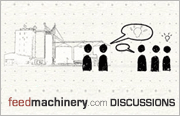China’s State Council released the Administrative Rules of Feed and Feed Additives (Revision Draft for Comment) (http://www.chinalaw.gov.cn/article/cazjgg/201002/20100200195358.shtml ). It emphasizes the strict management on feed additives as well as limitation in foreign-funded enterprises, inhibiting the direct sales of imported feeds and feed additives in China by overseas enterprises and individuals.
There are mainly three categories of measures:
1. New feeds and feed additives
(1) Perfect the management on new feeds and feed additives
(2) To ensure the animal products quality safety and keep people healthy, add the specification in monitoring period of new feeds and feed additives, defining the major responsibilities of administrative sectors and producers during the monitoring period.
2. Import and export of feeds and feed additives
(1) Perfect the registration procedure for the first time import of feeds and feed additives.
(2) Regulate the operation of imported feeds and feed additives in China. Inhibit the direct sales of imported feeds and feed additives by overseas enterprises and individuals. Packages and labels of products should comply with related requirements.
(3) Add the specification in the export procedure of feeds and feed additives.
3. Production, sales and use of feeds and feed additives
(1) Enhance the management of production segments. Perfect the application and approval procedures of the establishment of feed and feed additive production enterprises; add the specification in the production license period and renewal procedure of enterprises; set up the supervisory system for the whole production process, including quality safety control measures in the raw materials purchase, production and sales, etc; define the product recall responsibility of enterprises.
(2) Regulate the management on operation segment. Operators are required to set up the purchase and sale standing book system and forbidden to unpack and subpackage, process products and add substance; commercial & industrial departments and feed administrative sectors are required to enhance the supervision and exchange the supervision information immediately.
(3) Regulate the use in breeding segment. Breeders are forbidden to add substances in feeds and feed additives at will; breeding farms should carry out standard production and use feeds compounded by themselves.
Such intervention act is to curb melamine. However, the melamine problem has been deep rooted in Chinese feed industry. Moreover, the melamine content standard has not been released. There is huge controversy on the non-toxic content of melamine. In March 2007, Chinese pet feed exported to USA was found containing excess melamine; in 2008, the Sanlu milk scandal emerged; in 2010, Panda milk was also found containing melamine. Besides some milk cow breeders, numerous feed factories also add the excess melamine. Some feed producers will add the melamine in the production to meet the demands of breeders. Thanks to the special body structure of ruminants (cow, sheep, etc), they can transfer a little toxic melamine into protein for absorption. Their strong renal function helps the successful metabolism of toxins.
In the deepest sense, Chinese government aims to inhibit the participation of foreign-funded feed enterprises (imported feeds and feed additives) in the competition to protect the interests of state-owned enterprises and enhance the industrial monopoly.





